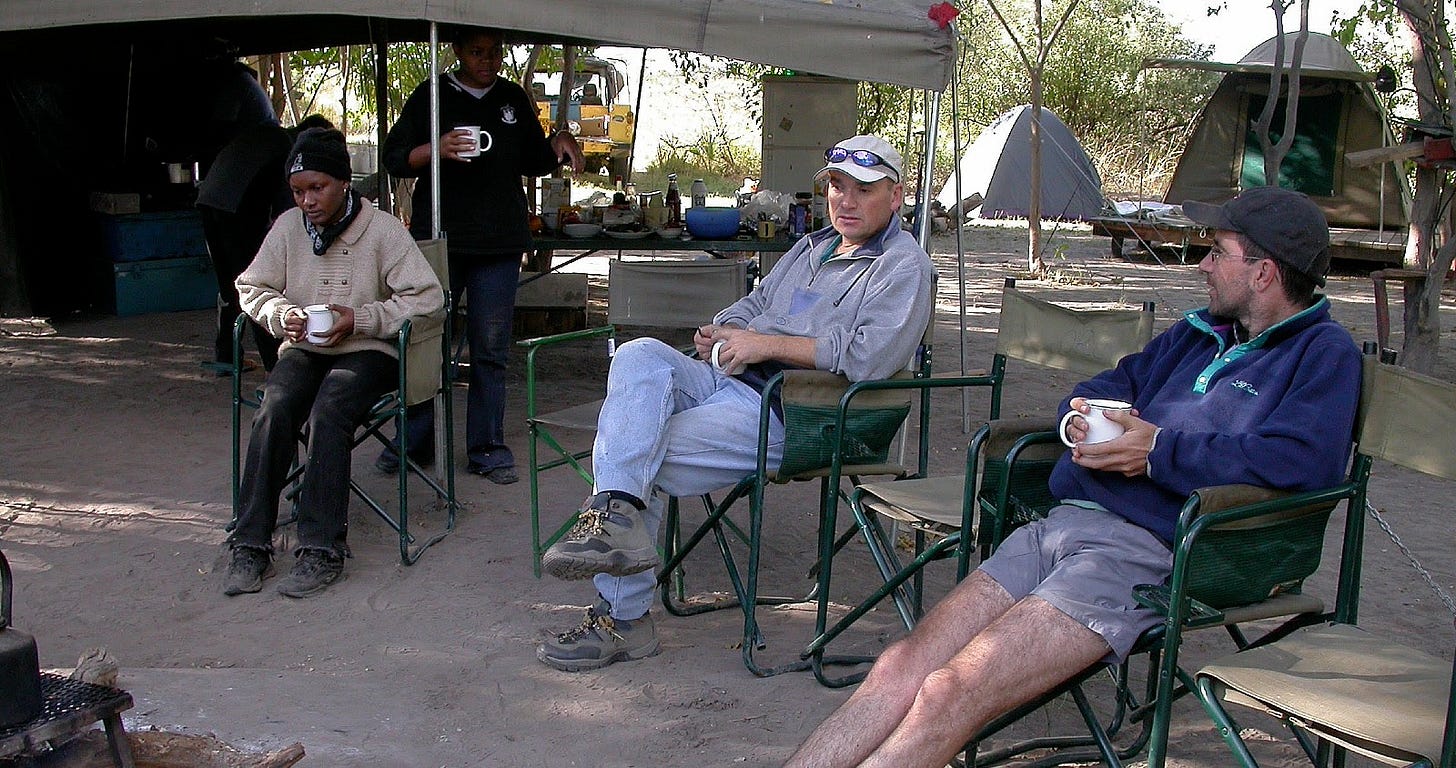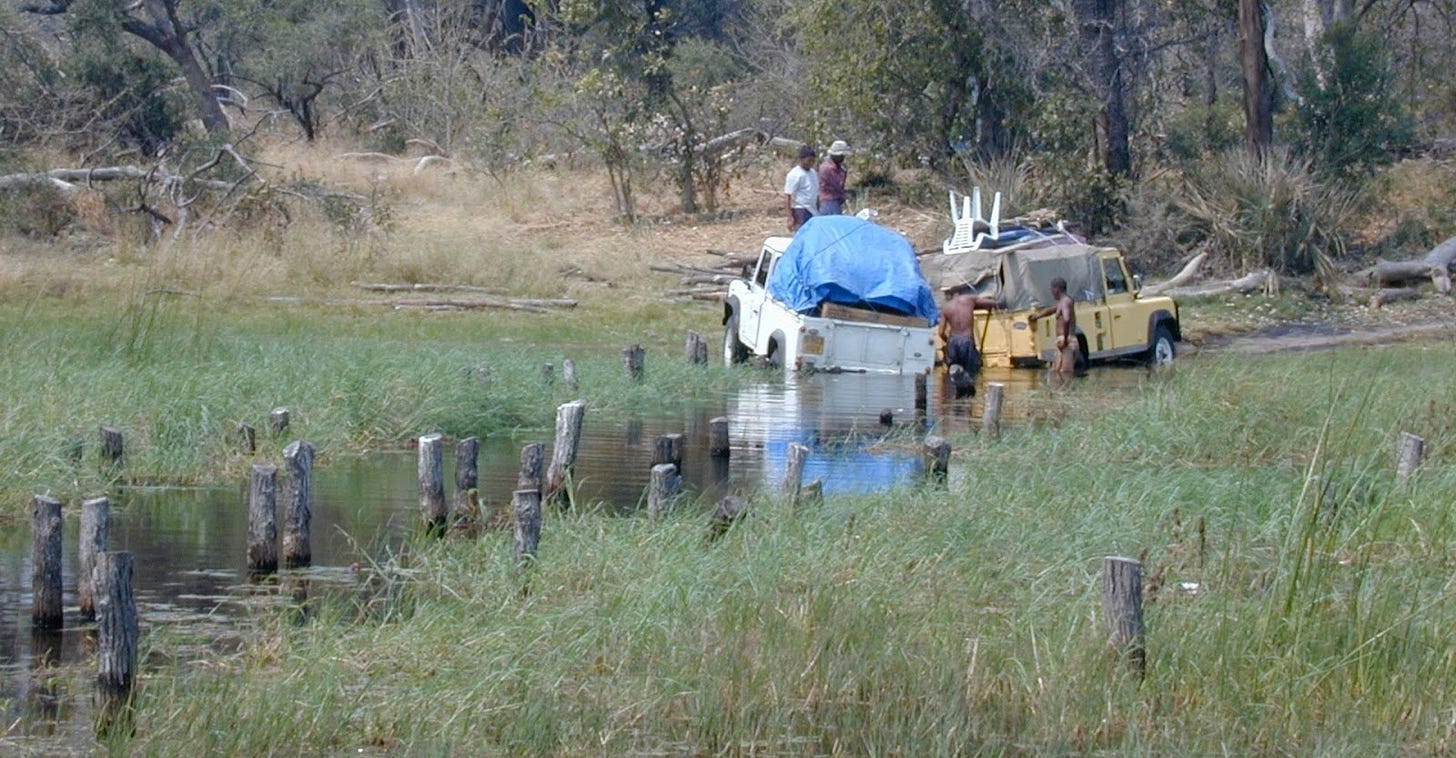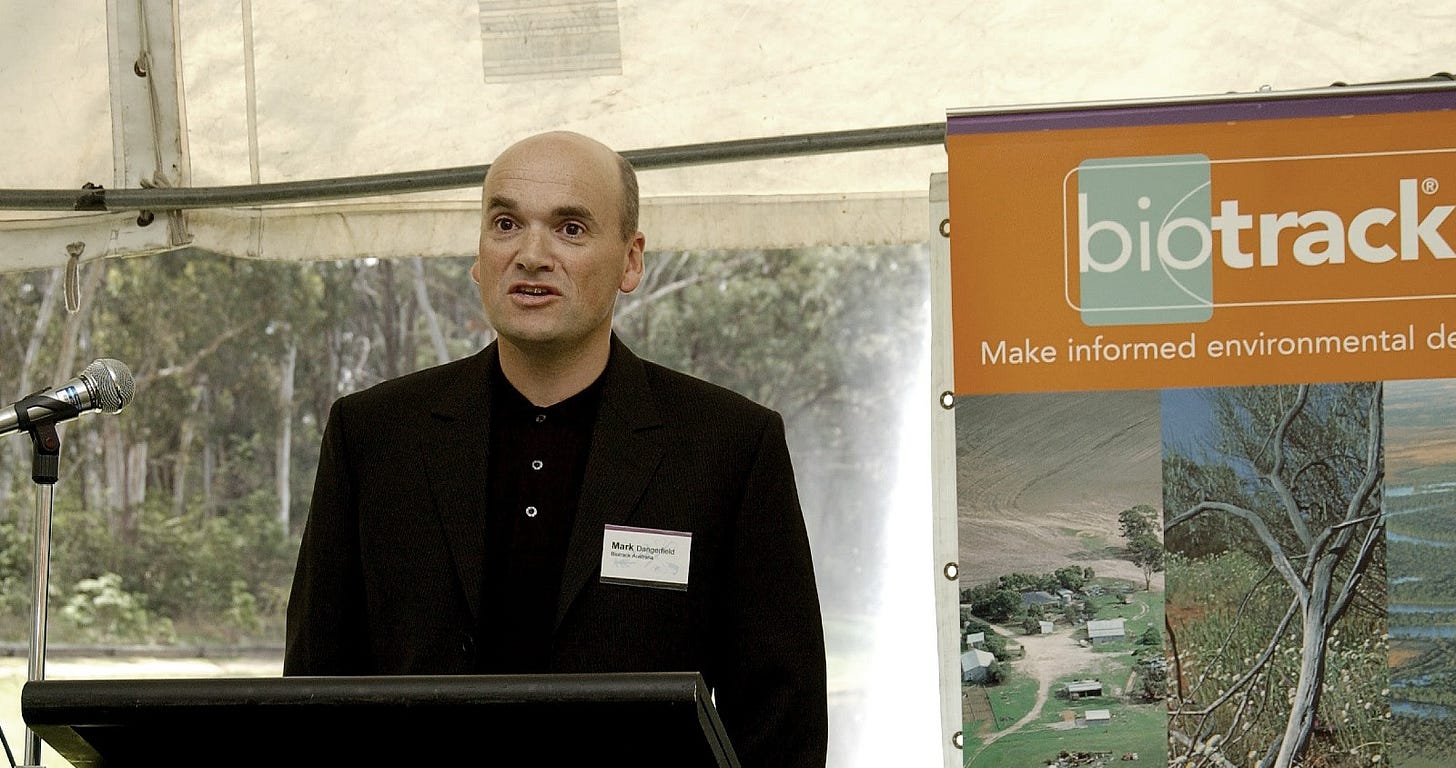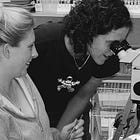Curiosity, Questions, and Counting Millipedes
Why the World Needs More Awkward Scientists
Scientists are nerdy, often lack social skills, and have an appalling sense of fashion. Not the best characteristics to entice support but don’t let all that put you off. Scientists are critical to the survival of humanity and we need more. Maybe you would like to become one.
I am lying in my flimsy nylon tent in the middle of the Okavango Delta. It’s hot, and I’m running a fever thanks to some dodgy chicken we had for yesterday’s dinner. Everyone else in the team is out doing the science without me.
Through my delirium, I hear a rumble.
An elephant passed by, torn between curiosity and fear of the odd smell. I try to appear casual about having a multi-ton mammal above my head, but inside, I was questioning every life choice that had led to this moment.
I realised this was not how most people pictured a career in science.
You probably have your mental image of what scientists are like. The socially awkward genius hunched over a microscope, perhaps, or the wild-haired theorist scribbling equations on a blackboard.
These stereotypes contain grains of truth—yes, we can be a bit nerdy, and my fashion choices have occasionally raised eyebrows. But they miss something fundamental about science and why it matters now more than ever.
In this article, I'll share what decades as an ecologist have taught me about the true nature of scientific work and a career in science. These insights are particularly valuable whether you're a student contemplating a scientific career or someone seeking to understand and contribute to environmental solutions.
You'll discover why the path of a scientist is rarely straight but always enlightening and how scientific thinking offers tools far more valuable than career skills.
Let me indulge in some CV peddling to explore why humanity needs more people willing to embrace scientific thinking—awkward fashion choices entirely optional.

An ecologist
I have been a scientist for over 40 years, an ecologist, more precisely.
A nerd who is consumed by the what, how and why of organisms interacting in nature. And I have had outstanding good fortune.
My career has taken me from the UK to Africa, Asia and Australia. I've seen black rhinos in the Zambesi Valley, kangaroos on outback gibber plains, dolphins frolicking in the ocean, held a specimen of an extinct bird from a museum collection, almost walked into a lion pride, and talked about it all for hours at a time.
I consider myself extremely lucky.
Many of my best experiences were completing scientific surveys and experiments in the bush. It is quite something when you're trying to extract soil animals from leaf litter and look up to see an elephant curious about what you are doing.
Perhaps the time when, many hours into a crossing of the central Kalahari in the aftermath of a rain shower, we were forced to stop the Landcruiser in the middle of nowhere. On the damp sand, crawling around, were millipedes, hundreds of them. The very creatures we were searching for, and yet we had no idea that they would live in such dry environments.

Then there were sweaty times digging holes through the concrete like turrets of termite mounds or measuring the length of shoots on Acacia bushes to see if they responded more to goats than they did to giraffes.
Or the pitfall trap sampling in the Australian outback, so far from habitation that it seemed like the moon, but on the ground, an ancient beer bottle.
Most of the people who witnessed any of these things would have called me mad. Not everyone sees the value in such esoteric pursuits.
I love it.

A precarious career
It has been a struggle to maintain a career as an ecologist.
Jobs are few and far between, requiring an opportunist's aptitude and the gambler's risk-taking. But my career, if not as I imagined, has been very good to me.
After applying for dozens of positions on completing my PhD, I came across a Postdoctoral Fellowship with the Association of Commonwealth Universities at the University of Zimbabwe in Harare—one of the many mechanisms the Brits used to cling onto influence as their empire faded.
I applied in a heartbeat. Somehow, I knew what Africa meant to my soul.
I was shortlisted for an interview, and on the panel was Professor Tony Wallwork, the external examiner of my PhD thesis, who wrote the book. His 1970 text "Ecology of Soil Animals" stands out for its groundbreaking integration of ecological principles with soil fauna studies. Sometimes, you need a break, especially early on in your career.
I landed the fellowship and spent an undescribably wonderful two years honing my science skills in Zimbabwe.
Just as I was about to panic over what to do next, I met the head of the Department of Biology at the newly independent University of Botswana. Soon enough, I was in Gaborone, and for the next seven years, I chased millipedes in the desert and taught ecology to undergraduates who had never seen the ocean.
I’ll save you the details of how Africa gave way to six years at the Key Centre for Biodiversity and Bioresources at Macquarie University in Australia and, after that, a mixture of entrepreneurship and consulting in biodiversity, ecology and carbon markets.
What matters here is that I was always a scientist.
One factor in my longevity in this precarious profession is a thorough grounding in the philosophy of science and a slave-like adherence to applying the logic of the scientific method.
Science provides the foundation for our understanding of nature. It gives us technology, resources and infrastructure. These things become accessible because we understand the basic principles of how materials work and whether or not the bridge will fall down.
All of this understanding came from the scientific method, which explicitly establishes cause and effect through controlled experiments or the application of inductive reasoning, where the observations do more of the heavy lifting.
Either way, it was running on and applying the skills to evaluate evidence. I was curious and critical.
It didn't always come from my own research, but I was in the business of interpreting what humans knew about nature and how the world works.

Science done well
Science is hard to do well.
It takes courage and tenacity to understand the known and explore the unknown. You need training as a sceptic to get into the right mindset to accept some concepts as correct and accurate while testing others.
All scientists walk this tightrope.
They second-guess the truth to establish it. For example, when it comes to using natural resources, especially in land management, to deliver the food and dietary needs of the future, the tightrope is very thin and drawn high above a chasm.
Growing enough of the right types of food to feed 8 billion souls for a hundred years or more will require all our scientific capability.
That said, it is easy to see why our politicians, bureaucrats, and other civic leaders shy away from science. The answers science provides to pointed questions are rarely black and white, and the process is opaque.
This makes for wobbly recommendations even when the technical details can be explained.
Just because lawmakers and leaders might not understand the philosophy, it is wrong for them to ignore the evidence science delivers. Even school kids know that science is essential for understanding the world.
The current populist leaders may have decided that science is irrelevant, but they will regret that choice.
So do not be shy.
There are careers to be had in science. Maybe not lucrative, but highly rewarding in positive ways.

The Scenic Route to Science
When students used to ask me how to become scientists, I’d tell them to get good grades, complete their degrees, and land a prestigious position. That’s the obvious answer, but I’d also say that before doing anything, you should find some courage for the experiences.
My journey included dozens of rejected job applications after my PhD that could have spelled career death before it started. Instead, they led me to Zimbabwe, where I learned more about ecological research in two years than a lifetime of textbook study could provide.
I never planned to chase millipedes across the Kalahari or measure acacia shoots while watching for lions, but I am so glad that it played out that way. But I needed courage to get on the plane from England to the heart of Africa because science, like nature itself, favours the adaptable.
Again, there were dozens of rejections as I tried to get from Africa to a university in the US or Europe, before Australia said okay. Each apparent setback became a stepping stone to something unexpected and enriching.
But here's what nobody tells you about becoming a scientist.
When you train, you develop a particular kind of intellectual agility. You learn to hold two competing ideas in your mind simultaneously. You become comfortable with uncertainty while still striving for clarity. You discover that questioning assumptions that include your own isn't just an academic exercise but a powerful life skill.
So courage, yes, but the real need isn't in what you know but how you think.
Does this mean every scientist ends up where they planned? Hardly. I've watched brilliant researchers become entrepreneurs, educators, and policymakers. Some of my most successful colleagues now work in fields they never imagined during their training. Yet they all credit their scientific background with giving them the tools to navigate these transitions.
The key is understanding that science is a way of engaging with the world. It teaches you to embrace curiosity while maintaining scepticism, seek evidence while acknowledging uncertainty, and accept failure as a step toward discovery. These aren't just research skills; they're life skills.
So if you're considering a path in science, don't worry too much about plotting the perfect course.
Instead, focus on developing the mindset. Learn to ask good questions. Practice looking for evidence. Get comfortable with uncertainty. These habits will serve you well, whether you study soil organisms in Africa or solve completely different challenges elsewhere in life.
After all, the most valuable discoveries often happen when we wander off our planned route and stay curious about where the path might lead.
Mindful Momentum
The Five-Minute Field Naturalist
Here is a good way to begin becoming an ecologist.
Spend 5 minutes observing something in nature; anything, maybe a plant, insect, or bird.
First, watch without judgment (mindfulness).
Then, ask three questions about what you see (scepticism):
What is happening here?
Why might it be happening this way?
What evidence supports my assumptions?
Record your observations and questions in a simple journal. After a month, review your entries to see how your observation skills and questioning have evolved.
Key Points
Science demands more than technical knowledge—it requires intellectual agility and the courage to venture into uncertainty. The most successful scientists combine rigorous methodology with adaptability, learning to hold competing ideas simultaneously while remaining open to unexpected discoveries. This mindset, developed through scientific training, becomes valuable beyond the laboratory or field station.
Becoming a scientist rarely follows a straight line and often involves setbacks, chance encounters, and surprising opportunities. While academic qualifications matter, the fundamental transformation happens in how one thinks. Scientists develop a unique combination of curiosity and skepticism that helps them navigate professional challenges and the big questions. Successful careers in science often unfold unexpectedly, leading to diverse roles in research, education, policy, and entrepreneurship.
Scientific thinking offers powerful tools for understanding our complex world, but it needs to be balanced with mindful awareness. The scientific method provides a framework for questioning assumptions and evaluating evidence, while mindfulness adds the wisdom to know which questions are worth asking. This combination—mindful scepticism—is particularly valuable for tackling today's environmental challenges, where both analytical rigor and holistic understanding are essential.
Popular stereotypes about scientists being socially awkward or purely analytical miss the deeply human aspects of scientific work. Real science demands creativity, collaboration, and effective communication, especially in ecological field research where success often depends on building relationships with local communities and adapting to unpredictable conditions. As humanity faces unprecedented environmental challenges, we need more people willing to embrace scientific thinking in all dimensions.
You Might Also Like
Curiosity Corner
What this issue is about…
A career chasing millipedes across Africa—among many other scientific things—taught me that science isn't just about lab coats and data. It's about developing the intellectual agility to question assumptions while remaining open to unexpected discoveries, a mindset we desperately need in today's complex world.
Here are some better questions…
How does scientific thinking transform beyond just accumulating knowledge? Better because it shifts focus from what scientists know to how they think, revealing the deeper value of scientific training.
What happens when we balance rigorous scepticism with open-minded awareness? Better because it explores the integration of seemingly opposite approaches, leading to richer understanding of complex problems.
Why do we need more adaptable scientists rather than just more scientists? Better because it challenges assumptions about scientific careers while highlighting the importance of intellectual agility in solving modern problems.
How can everyday observation skills enhance our ability to think scientifically? Better because it makes scientific thinking accessible and practical, connecting formal methods to natural human curiosity.
What does studying millipedes in the Kalahari teach us about approaching uncertainty? Better because it uses a specific example to explore universal themes about knowledge, discovery and the scientific mindset.
Each question moves beyond surface-level inquiry to probe deeper principles, relationships and meanings - exactly what mindful scepticism aims to achieve. They avoid simple yes/no answers and instead open up conversations about how scientific thinking applies to real-world challenges.
What’s your better question?
In the next issue
The Great Diet Paradox
When Science and Survival Collide 🧬 How did humans thrive for 290,000 years without nutritional guidelines yet struggle with metabolic diseases in an age of unprecedented dietary knowledge?
Join Chris next week as he unravels this evolutionary puzzle and explores what it means for your health decisions.
I think the best environmental conversations happen when we balance intellectual honesty with genuine curiosity. No sacred cows, but plenty of respect for evidence.
If you found yourself nodding, disagreeing productively, or simply thinking 'I hadn't considered that angle,' then we're building the kind of discourse our complex world desperately needs.
Your support keeps these conversations alive and the newsletter free.







"The most successful scientist thinks like a poet — wide-ranging, sometimes fantastical — and works like a bookkeeper. It is the latter role that the world sees." -- E.O. Wilson
Such a great primer about science as an activity and a career, John. The "scientist as nerd" meme is a serious problem. Scientists fail to communicate what a CREATIVE business it is. The artists get all the glamor.
I really liked your 5 minute field naturalist exercise. It brings a nice structure to mindfulness outside. Thanks for sharing!